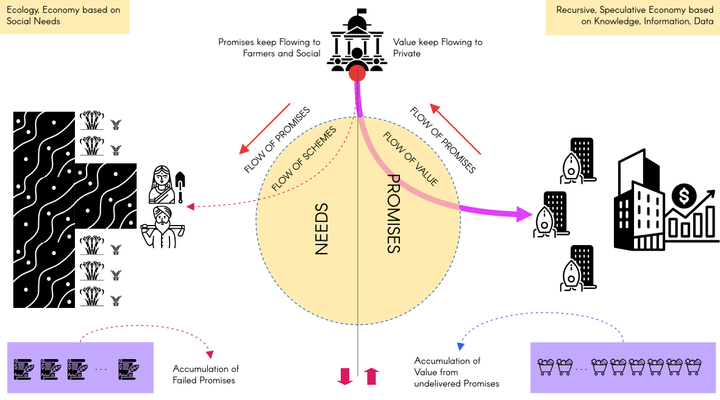Credit, Working Women & Alienation
There is a growing spectre of credit among the working classes, in the country. To put it very straight, it is not merely the alarming rates of household indebtedness of working class families and particulary, the working women, as mainstream economists would caution us. The problem is deeper. And it is the following. For the worker to access, gainful productive work, credit has become inevitable. And the product of that labour, in the process, instead of nurturing and reproducing his and her capacity to work and earn, it is going to service debts. This is alienation of a kind, where labour is tied to credit servicing, and hence any returns, be it wages or petty production is an instrument in the circulation of credit, that clearly reproduces the speculative capacity of finance, in the hands of those, who could manipulate its flow in and out of labouring families.
While all the attention is gained by the follies of big finance and the absence or the failure of state or institutional regulation, it has served only as a critique of finance capital. But we need to comprehend its working character in the way it is altering the labour process and conditions of social reproduction of labour, within households, in families and in the kind of localized social relations it is shaping. To provide one example, fishworkers are faced with a reality of falling catch, dwindling marine resources on the one hand, and the compelling necessity to go fish, knowing that the returns will not be good. Between these two poles, is the role of small credit that enables the day to day investment (fuel, wages etc. ) but the returns are insufficient to cater to the needs of nutrition, health and education of the family. The returns go in to servicing debts. The day’s labour, gained through productive work, is made possible because of access to credit. But the same credit also took away the returns. The costs of reproduction of labour and the family comes from small credit, and here we find the vicious cycle of indebtedness that the economists talk about. And to us, this is alienation of labour of the most severe kind. How do we intervene in such a scenario?
The failure of institutional credit to working class is a well known narrative. But the rise of informal credit now being formalized by the state, in multiple ways, through the so called Non Banking Finance Sector, and its integration with the provision of welfare by state agencies has made the situation worse. Apart from the issues of alienation, the lure of credit and the accompanying harassment, especially of the women requires the most urgent of all interventions. They are harassed by the lending agencies, the microfinance companies, the informal lenders and the public sector banking officials. There is a constant threat to dignity of these women from these agencies and it is that dignity that the working class movement needs to defend and standby.
In this work, we want to explore the growing relationship between finance and mathematics with respect to working women’s lives. The use of mathematical tools and models by finance industry which lead to rising indebtedness among working women’s families is our primary focus.

